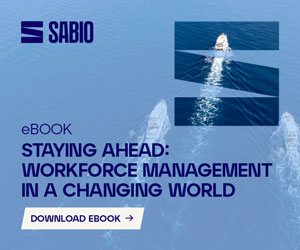Current global affairs have accelerated the already flourishing trend of remote agents. As we have previously written, the top benefits of having remote agents include reduced costs and less employee burnout, as well as heightened security for your operations in the case of mobility restrictions.
As recent trends show, the benefits of remote work can also be felt by employees. According to a recent State of Remote Work report, almost all employees working remotely want to remain doing so. 98% of participants want to continue remote work in some form for the rest of their employment.
As the world is increasingly demanding a remote workforce, it is time to ask yourself both as a manager and as an employer: Can remote agents be as productive as agents sitting in the office?
Happy
Given that contact centres are notoriously stressful environments, agent motivation and employee retention have always been a challenge for both call centre managers and business owners.
While it might not seem relevant to some, maintaining a happy and balanced workforce is key for maintaining a consistent level of productivity and a consistent workforce. Remote work can be a solution.
Remote work helps eliminate many of the stressors that come along with an office environment. Namely, long commutes, noisy and distracting office environments, and demoralizing office cubicles.
Agents working from the comfort of their homes are able to avoid all these factors. A recent study showed that remote workers reported being 22% happier compared to office workers.
The same study concluded that remote employees reported having a better work/life balance, more focus, and less stress. Additionally, companies allowing for more flexibility were more likely to retain their employees.
=Productive
This satisfaction directly translates to productivity. The same study concluded that remote employees work 43% more than their non-remote counterparts. According to another study on the topic, 91% of remote workers feel they are more productive when working remotely.
With 89% of open-office workers reporting that they are more productive when working alone, it is no surprise to see that office work is not for everyone.
More Talent, More Opportunities
Remote work also means more options when making your staffing choices, as location no longer gets in the way of selecting the best candidate. This means that you can fully diversify your staff, based on your specific business needs.
For example, call centres running a customer service operation often struggle with finding an effective multilingual workforce. This is another point where a remote workforce proves to be more productive.
As opposed to on-premise office staff, you are able to access a global pool of high-quality talent, given that you are geographically limitless in choosing your employees.
With this, you will be able to find the most skilled agents and employees not just in terms of their language skills, but in any skill necessary for your specific business model!
Additionally, the flexibility that you assume by being open to a global remote workforce does not just imply a global talent pool, but also an appreciative one. The potential of alternative schedules and the above-discussed benefits of global remote locations will be appreciated by your employees.
The more flexible the company, the more committed the employees. With this, you can make sure that your business won’t suffer the consequences of low employee retention rates.
Given the increased levels of employee satisfaction, the resulting higher levels of productivity and employee retention, as well as the option of a global staffing pool, it is safe to say that having remote agents can be just as, or even more effective than, maintaining an on-premise workforce.
Additionally, the element of reduced costs and heightened security arising out of a remote workforce can also be part of your considerations.
Author: Robyn Coppell
Published On: 19th Oct 2020 - Last modified: 12th Jul 2022
Read more about - Archived Content, VCC Live



























